When you leave the hospital, your body is still healing-and your meds might have changed. Maybe you were taken off blood thinners, started a new diabetes pill, or stopped a painkiller you’d been on for years. But if no one checks what you’re actually taking at home, those changes can turn dangerous. In fact, medication reconciliation is one of the most overlooked yet critical steps after hospital discharge. Without it, up to 70% of patients go home with a mismatch between what they were told to take and what they’re actually taking. And that’s how preventable errors, readmissions, and even deaths happen.
Why Medication Reconciliation Isn’t Just a Formality
Medication reconciliation isn’t about checking boxes. It’s about making sure your list of pills, patches, eye drops, and supplements matches exactly what your doctors intended when you left the hospital. The National Quality Forum calls it NQF 0097, and Medicare requires it. But here’s the problem: most patients don’t know what’s supposed to happen. And many providers don’t have the time-or the system-to do it right. Think about this: you’re discharged with a new prescription for warfarin, but you’ve been taking aspirin at home for heart health. If no one compares the two lists, you could end up with dangerous bleeding. Or worse-you were taken off a blood pressure med in the hospital because your numbers dropped, but no one told you to keep skipping it. By day five at home, your pressure spikes. That’s not bad luck. That’s a failure in coordination. Studies show that pharmacist-led reconciliation cuts medication errors by over 30%. That’s not a small number. It means fewer ER visits, fewer readmissions, and less stress for families. But it only works if someone takes responsibility.Who’s Supposed to Do This-and Why It Usually Falls Through
Theoretically, your primary care doctor should handle this. But here’s the reality: they get your discharge summary a week after you’re home. By then, you’ve already filled your prescriptions, maybe taken a pill wrong, and started feeling off. The window for catching errors is narrow-30 days, according to CMS rules. But if your PCP is swamped, and your specialist didn’t get the message, who’s left to act? The system is broken by design. Medicare allows only one billing code per discharge for transitions of care (CPT 99495 or 99496). That means your primary care provider and your cardiologist can’t both get paid to reconcile your meds. So who does it? Often, no one. Or worse, the person who bills gets to decide-which creates conflicts, not care. Meanwhile, hospitals discharge patients with a paper list that’s handwritten, incomplete, or missing key details like dosages or frequencies. A 2022 AHRQ survey found that 68% of hospitals still use fragmented EHR systems that don’t talk to each other. Your discharge summary sits in the hospital’s system. Your pharmacy’s system doesn’t see it. Your PCP’s EHR doesn’t auto-populate it. So you’re left to explain it all again-on your own.The Three-Step Process That Actually Works
Here’s what successful medication reconciliation looks like-not in theory, but in practice:- Get your complete home list before discharge. Don’t wait for the hospital to ask. Bring a written list of everything you take: prescriptions, over-the-counter drugs, vitamins, herbal supplements, eye drops, creams-even the ones you only use once a week. If you don’t have one, make it now. Take photos of your pill bottles. Write down the dose, time, and reason. This is your baseline.
- Ask for a side-by-side comparison at discharge. Before you leave, ask your nurse or pharmacist: “Can you show me what was changed, added, or stopped-and why?” Don’t accept a generic list. Make sure they highlight every difference. If they say, “We’ll send it to your doctor,” ask: “Who will follow up? When?” Get a name and number.
- Confirm within 72 hours. Don’t wait for your next appointment. Call your pharmacy or primary care clinic within three days. Say: “I was just discharged from [Hospital]. Can you check if my meds match what was sent to you?” Many pharmacies now offer free post-discharge check-ins. If they don’t, ask if they can connect you with a pharmacist. You’re not being pushy-you’re protecting your health.
This isn’t extra work. It’s non-negotiable. And it’s your right.
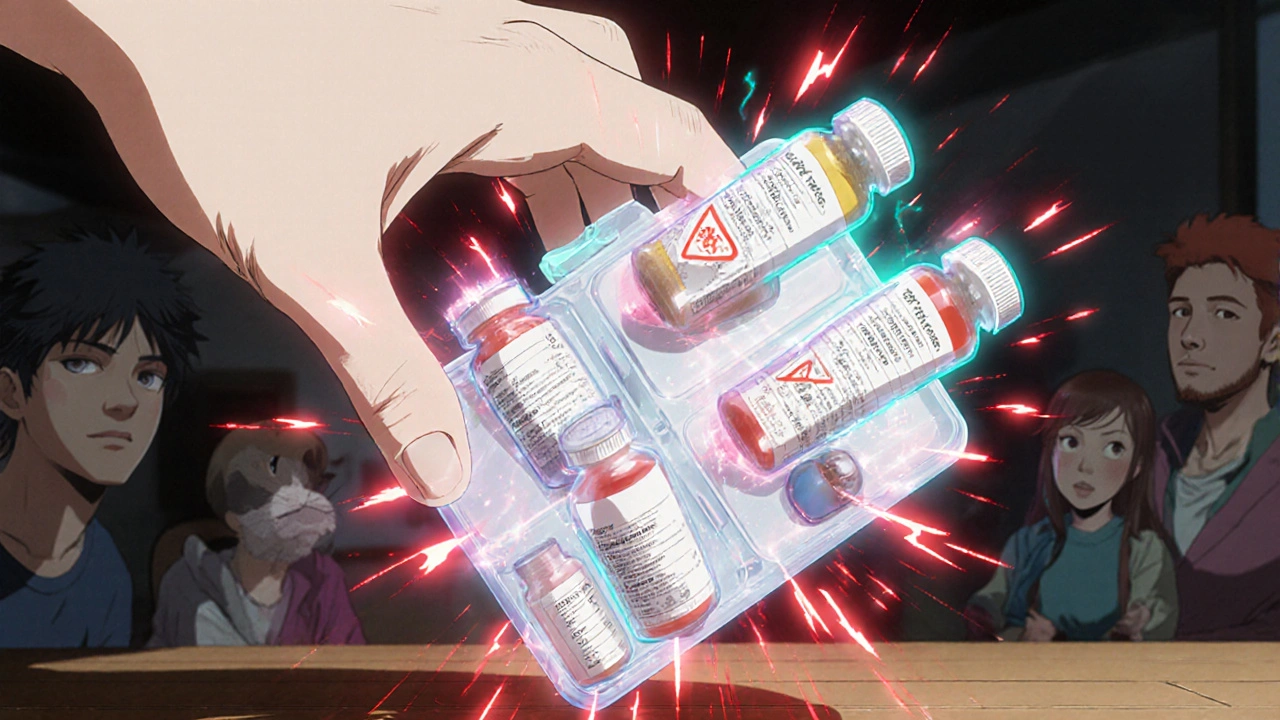
Why Pharmacists Are the Missing Link
In most hospitals, pharmacists are tucked away in the back, filling scripts. But the best outcomes come when they’re at the bedside-during discharge. A 2023 study in the Journal of the American College of Clinical Pharmacy tracked over 2,000 patients. Those who had a pharmacist review their meds at discharge had 32.7% fewer errors and 28.3% fewer readmissions. Why? Pharmacists don’t just check names and doses. They ask: “Are you taking this?” “Do you know why?” “Can you afford it?” “Are you having side effects?” They also use tools like electronic prescription history to see what you’ve actually filled-something doctors rarely check. One model, PipelineRx, found that combining EHR data with direct patient interviews improved accuracy by 41%. That’s not magic. That’s diligence. If your hospital doesn’t have a pharmacist on the discharge team, ask if they can refer you to one. Many community pharmacies now offer Medication Therapy Management (MTM) services-free or low-cost-for Medicare Advantage and Medicaid patients. You don’t need a referral. Just call and ask.What to Do If You’re Still Confused
You’re not alone if you’re overwhelmed. A 2021 study in the Annals of Internal Medicine found that 82% of primary care doctors felt they didn’t have enough time to properly reconcile meds during follow-up visits. So what can you do?- Use a pill organizer with labels. Don’t rely on memory.
- Keep a digital or paper log: date, medication, dose, time, how you felt after.
- Set phone reminders for every pill-even if you think you’ll remember.
- If you miss a dose, don’t guess. Call your pharmacy. They can tell you if it’s safe to double up.
- Bring your list to every appointment-even if you’ve been there before. Medications change fast.
And if you’re caring for someone else-parent, spouse, sibling-don’t assume they’re telling you the truth. People forget. They’re embarrassed. They don’t want to sound like they’re bothering anyone. Ask: “Did they change your meds at the hospital? Can you show me the paper they gave you?”
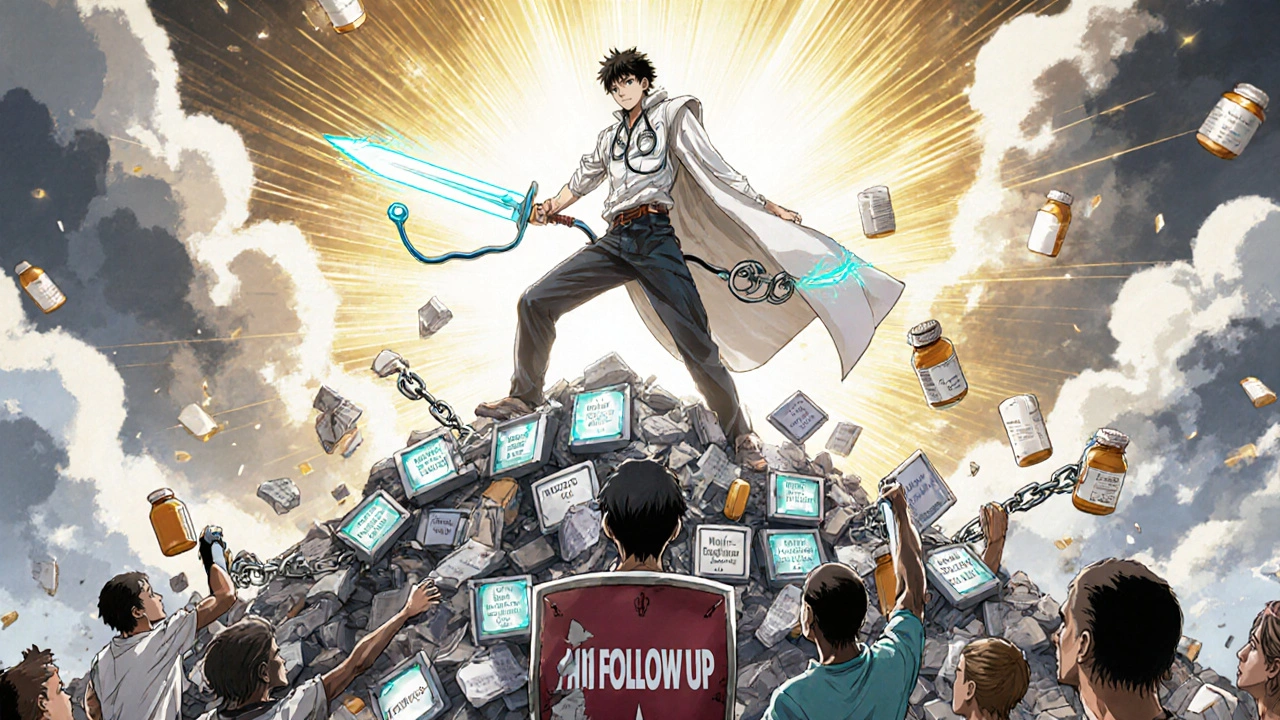
The Bigger Picture: Why This Matters Beyond Your Personal List
Medication errors after discharge cost the U.S. healthcare system $21.4 billion a year. That’s not just money. It’s lost time, pain, fear, and sometimes life. And it’s preventable. CMS now ties physician payments to how well hospitals and clinics do on this measure. If your provider doesn’t reconcile your meds within 30 days, they lose money. That’s the incentive. But real change happens when patients demand it. The top-performing health plans in the U.S. hit 92.4% compliance. The worst? Below 65%. That gap isn’t about technology. It’s about culture. It’s about who takes ownership. You’re not a passive recipient of care. You’re the center of it. And your meds? They’re your responsibility too.What to Ask Before You Leave the Hospital
Don’t leave without these answers:- What medications were added, changed, or stopped-and why?
- Can you show me the updated list, written out, with dosages and times?
- Who will follow up with me after discharge? What’s their name and number?
- Will my pharmacy get this list electronically?
- Is there a pharmacist I can call if I have questions in the next 72 hours?
- What symptoms should I watch for that mean I need to call someone?
If they can’t answer any of these, ask to speak to the discharge coordinator or a pharmacist. Walk out with clarity-or don’t walk out until you get it.
What happens if I don’t reconcile my medications after leaving the hospital?
Skipping medication reconciliation puts you at high risk for adverse drug events. You might accidentally take two drugs that interact dangerously, stop a vital medication like an anticoagulant or insulin, or keep taking a drug that was meant to be discontinued. Studies show that 30-70% of patients have at least one medication error after discharge, leading to 18-50% of all post-discharge medication errors. This increases your chance of being readmitted to the hospital-often within 30 days.
Can my primary care doctor handle medication reconciliation on their own?
They can, but they often can’t do it well. Most PCPs receive discharge summaries days after you leave, and many don’t have time during a short follow-up visit to thoroughly compare your home meds with your hospital list. Only 15-20% of PCPs consistently perform full reconciliation without support. That’s why pharmacist-led programs are more effective-they’re trained specifically for this task and can spend 30-45 minutes per patient, compared to the average 10-minute visit.
Is medication reconciliation covered by Medicare?
Yes. Medicare covers two types of reconciliation services: 1) Medication Therapy Management (MTM) under Part D for eligible beneficiaries, and 2) Transitions of Care (TRC) visits using CPT codes 99495 or 99496. These are billed by your provider, not you. However, only one TRC visit can be billed per discharge, and it must be done by a qualified provider-usually a physician, nurse practitioner, or pharmacist working under a physician. If you’re on Medicare Advantage, check if your plan includes post-discharge pharmacy services.
What if I can’t afford my new medications after discharge?
Never skip a medication because you can’t pay for it. Ask your pharmacist or discharge coordinator about patient assistance programs, generic alternatives, or coupons. Many drug manufacturers offer free or low-cost medications for eligible patients. Pharmacies like CVS, Walgreens, and Walmart have $4 generic lists for common drugs. Your hospital’s social worker can also help you apply for Medicaid or state pharmaceutical assistance programs. Medication reconciliation isn’t complete unless you can actually take the drugs you’re prescribed.
How do I know if my medication list is accurate?
Compare your discharge list with what’s in your pill bottles and what your pharmacy says you’ve filled. If there’s a mismatch-like a drug listed that you never received, or one missing that you were told to take-call your doctor or pharmacist immediately. Use a checklist: name, dose, frequency, reason, and start date. If you’re unsure, take a photo of each bottle and show it to your pharmacist. They can cross-check it with electronic records and tell you if something’s off.
Can I use an app to track my medications after discharge?
Yes, and it’s highly recommended. Apps like Medisafe, MyTherapy, or even your pharmacy’s app can send reminders, track refills, and generate printable lists to share with providers. Some top-performing hospitals now give patients access to secure portals where they can update their med list in real time. Even a simple Notes app on your phone works-if you keep it updated. The key is consistency. If you’re not tracking it, you can’t reconcile it.
Next Steps: Your Action Plan
1. Before discharge: Write down every medication you take at home-include supplements, creams, and herbal products. Bring this list with you. 2. At discharge: Ask for a printed, signed copy of your updated medication list. Make sure it shows what changed and why. 3. Within 72 hours: Call your pharmacy or PCP. Confirm your list matches what they have on file. Ask if they’ve received your discharge summary. 4. Within 7 days: Schedule a follow-up with your primary care provider. Bring your list, your pill bottles, and your questions. 5. Every month: Review your list. If anything changes-even a new OTC painkiller-update it and tell your provider.This isn’t complicated. It’s just rarely done right. You don’t need to be a medical expert to protect yourself. You just need to ask the right questions-and keep asking until you get clear answers.

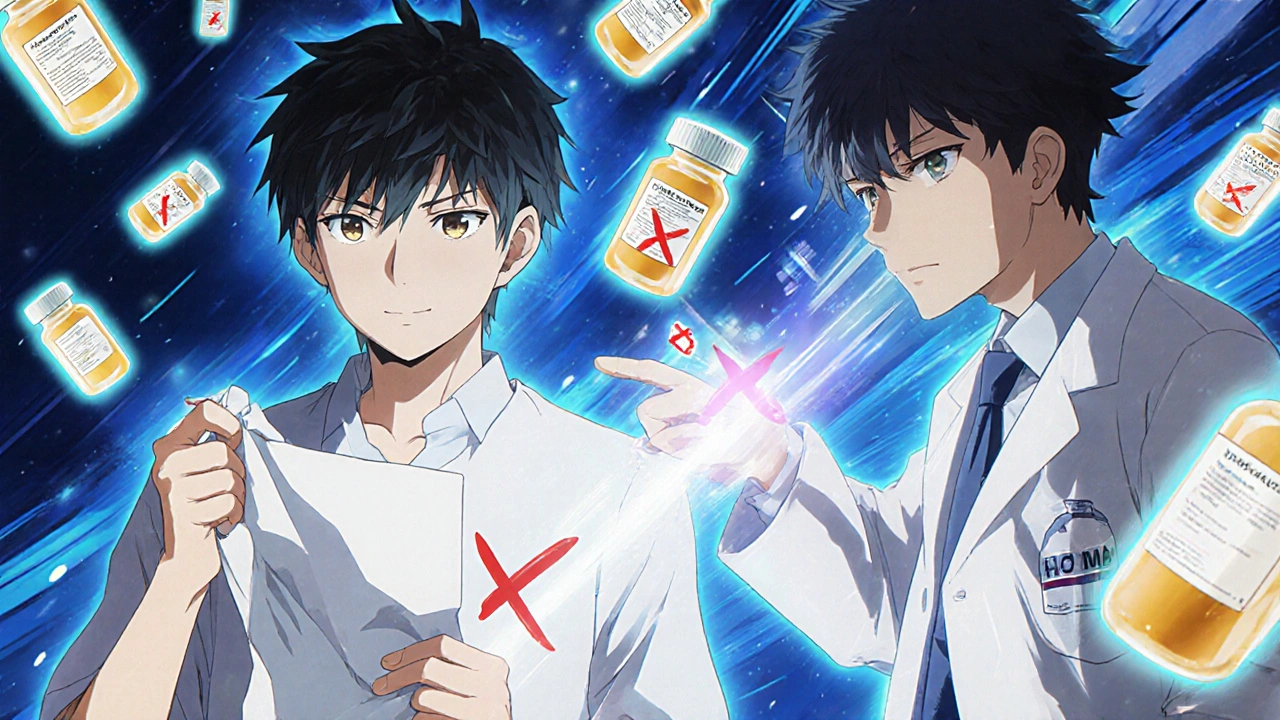

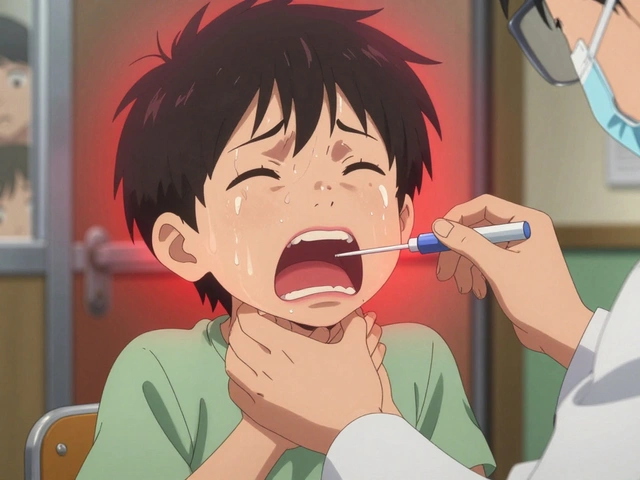
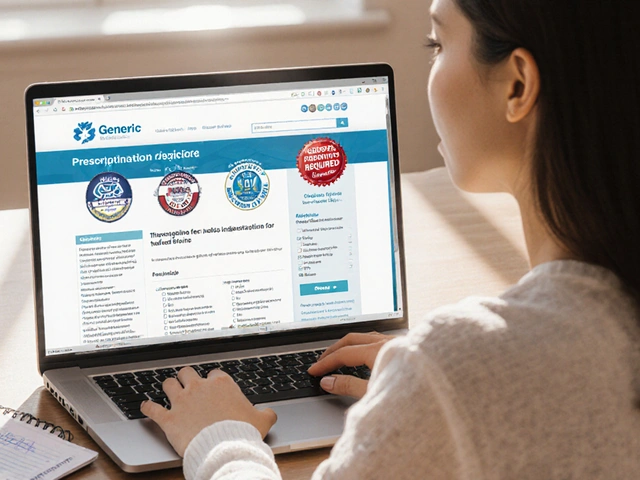

Peter Aultman
November 15, 2025 AT 07:55Finally someone says it like it is. I’ve seen too many older folks come home with a stack of papers they don’t understand. No one walks them through it. I helped my uncle sort his meds after his heart surgery - turned out they gave him two different blood pressure pills that canceled each other out. He was dizzy for days. Just ask for the list. Take photos of bottles. Don’t trust the system.
Sean Hwang
November 16, 2025 AT 09:44My grandma got discharged with 14 meds. No one told her which ones were new or why. She took them all at once. Ended up in the ER. The pharmacy later found three duplicates and two she was allergic to. Pharmacists are the real heroes here. If your hospital doesn’t have one at discharge, demand one. It’s not extra - it’s essential.
Barry Sanders
November 17, 2025 AT 19:41This post is a textbook example of patient entitlement. If you can’t manage your own meds, maybe you shouldn’t be living alone. The system isn’t broken - you’re just lazy.
Dilip Patel
November 18, 2025 AT 12:19India has better systems than this. We have community health workers who visit homes after discharge. No one here even knows what a discharge summary is. You wait weeks for your doctor to call. Meanwhile your pills are piling up like unread texts. This is why people die in America. Too much bureaucracy. Too little care.
kshitij pandey
November 18, 2025 AT 13:09I work at a clinic in Delhi and we do this exact process every time. We sit with patients, go through each pill, ask if they can afford it, check if they understand why they’re taking it. No fancy tech. Just time. And respect. You don’t need an app. You need someone who cares enough to sit down and listen.
Jane Johnson
November 19, 2025 AT 02:23While the intent of this article is commendable, one must acknowledge the structural inefficiencies inherent in the American healthcare delivery model. The fragmentation of electronic health records, coupled with insufficient reimbursement mechanisms, renders even the most well-intentioned protocols unsustainable. It is not merely a matter of patient advocacy, but systemic reform.
Brittany C
November 20, 2025 AT 06:14Medication reconciliation falls under the umbrella of transitional care management (TCM) as defined by CMS guidelines. The CPT codes 99495 and 99496 are designed to incentivize multidisciplinary coordination, yet underutilization persists due to provider burnout and lack of interoperable EHR infrastructure. Pharmacist-led models have demonstrated statistically significant reductions in 30-day readmissions (p < 0.01).
Sean Evans
November 21, 2025 AT 16:31People don’t die because of bad meds - they die because they’re too dumb to read the label. I’ve seen patients take 4 different painkillers at once and then blame the hospital. 😒 Stop being victims. Take responsibility. Your life isn’t a Netflix show where someone else fixes your mess.
Anjan Patel
November 22, 2025 AT 20:20My cousin died because they gave him a new blood thinner and never told him to stop his aspirin. The hospital said they sent the list. The pharmacy said they never got it. The doctor said he didn’t have time. Who do you blame? No one. That’s the problem. No one’s accountable. Just another statistic in the graveyard of American healthcare.
Scarlett Walker
November 23, 2025 AT 15:06I’m a nurse and I’ve done this a hundred times. The hardest part isn’t the meds - it’s the fear. People are scared to ask questions. They think they’ll sound stupid. You’re not stupid. You’re human. And you deserve to know what’s in your body. Just say: ‘I need to understand this.’ That’s all it takes.
Hrudananda Rath
November 25, 2025 AT 02:10It is an incontrovertible fact that the contemporary American medical-industrial complex has devolved into a labyrinthine apparatus of bureaucratic obfuscation, wherein the patient - once the locus of care - has been reduced to a mere transactional entity, bereft of agency, dignity, and comprehension. The abdication of responsibility by institutional actors is not merely negligent - it is ethically indefensible.
Brian Bell
November 25, 2025 AT 09:13Just had this happen to my mom last month. She was on warfarin, got discharged, forgot to tell her PCP. Turned out the hospital switched her to rivaroxaban but didn’t tell anyone. She almost bled out. Called the pharmacy on day 2 - they caught it. Thank god. Please, if you read this - ask. Ask. Ask.
Nathan Hsu
November 27, 2025 AT 08:23Before discharge: Bring a list. At discharge: Demand a printed, signed copy. Within 72 hours: Call your pharmacy. Within 7 days: Schedule a follow-up. Every month: Review. Repeat. This is not optional. This is survival. And if your provider doesn’t get it - find one who does.
Chris Ashley
November 29, 2025 AT 00:20My sister’s husband got discharged with 11 new meds. He thought the little green pill was for anxiety. It was actually for atrial fibrillation. He took it for three days. Then he passed out. They didn’t even tell him the name of the drug. Just handed him a bag. This isn’t healthcare. It’s a lottery.
Ashley Durance
November 29, 2025 AT 20:3770% error rate? That’s not a failure of process - it’s a failure of intelligence. If you can’t keep track of your own pills, why are you being trusted to manage chronic conditions? This isn’t a system problem. It’s a patient problem. Stop blaming the hospital. Start taking ownership.